Dan Levy on how Good Grief differs from Schitt’s Creek: ‘I’m not scared of people’s expectations’
Exclusive: “It's a drama with some comedy as opposed to a comedy with some drama,” says the star of his film hitting Netflix this week
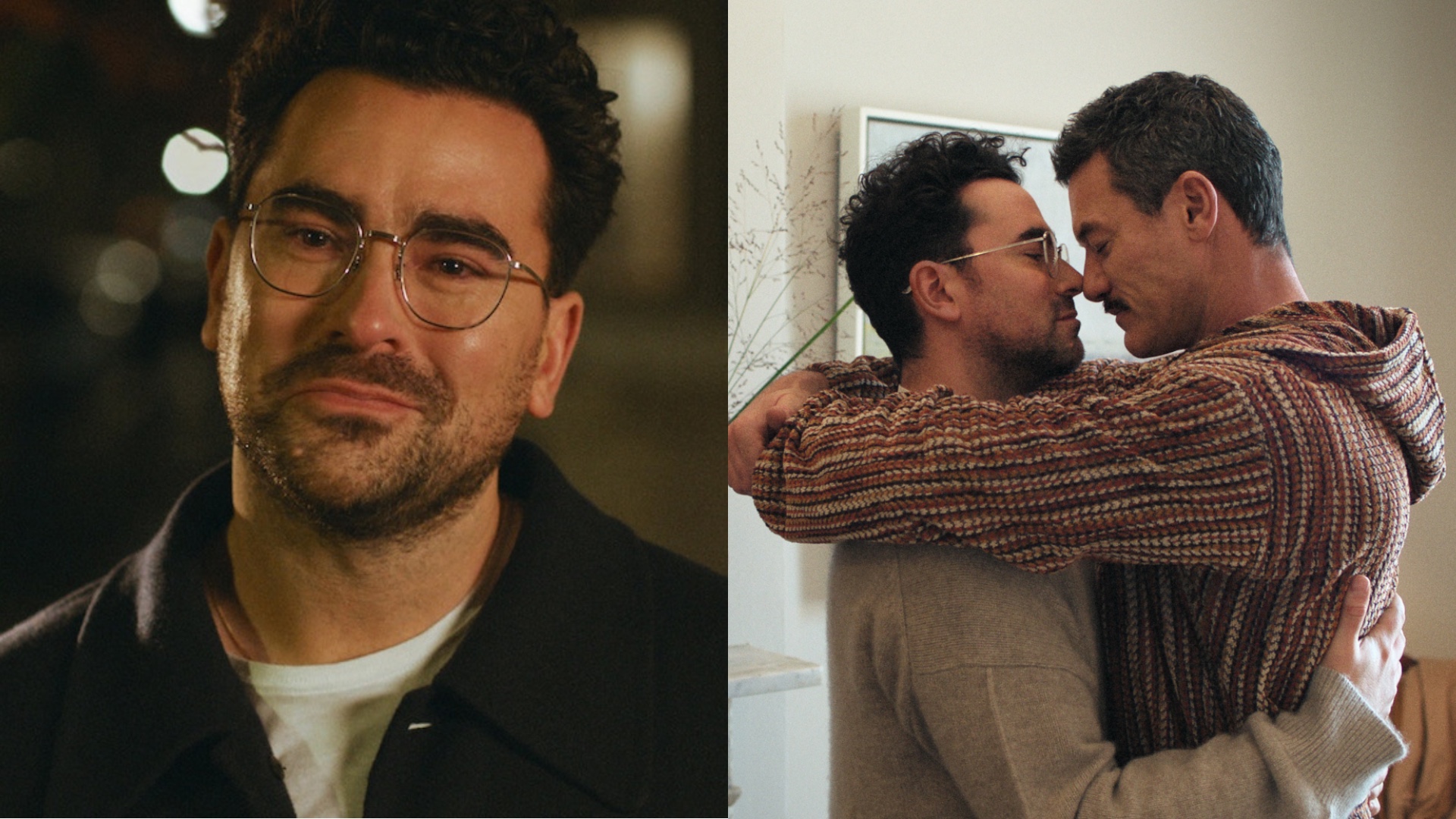
“It’s a Schitt’s Creek sort of day,” Attitude tells Dan Levy after train cancellations prevent us from interviewing the Hollywood star at his luxury London hotel as planned. Instead, we chat over Zoom from Attitude’s office on a former farm in Kent. “That’s incredible!” he exclaims of our rural location, reminiscent of the Emmy-winning TV show, adding with a conciliatory tone: “I’m glad technology has afforded us the opportunity to speak nonetheless…” He’s easy to connect with even though a screen, thank goodness.
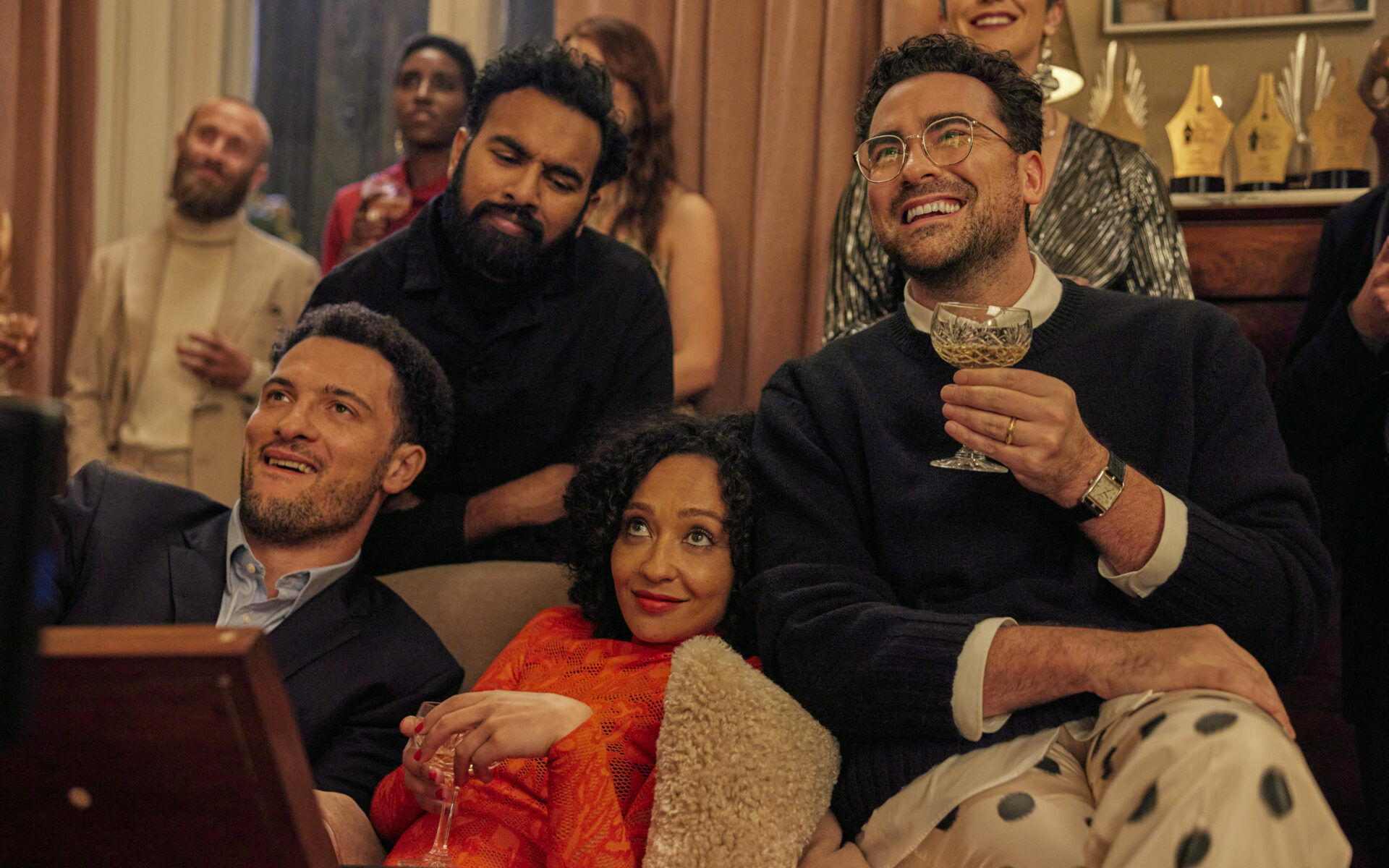
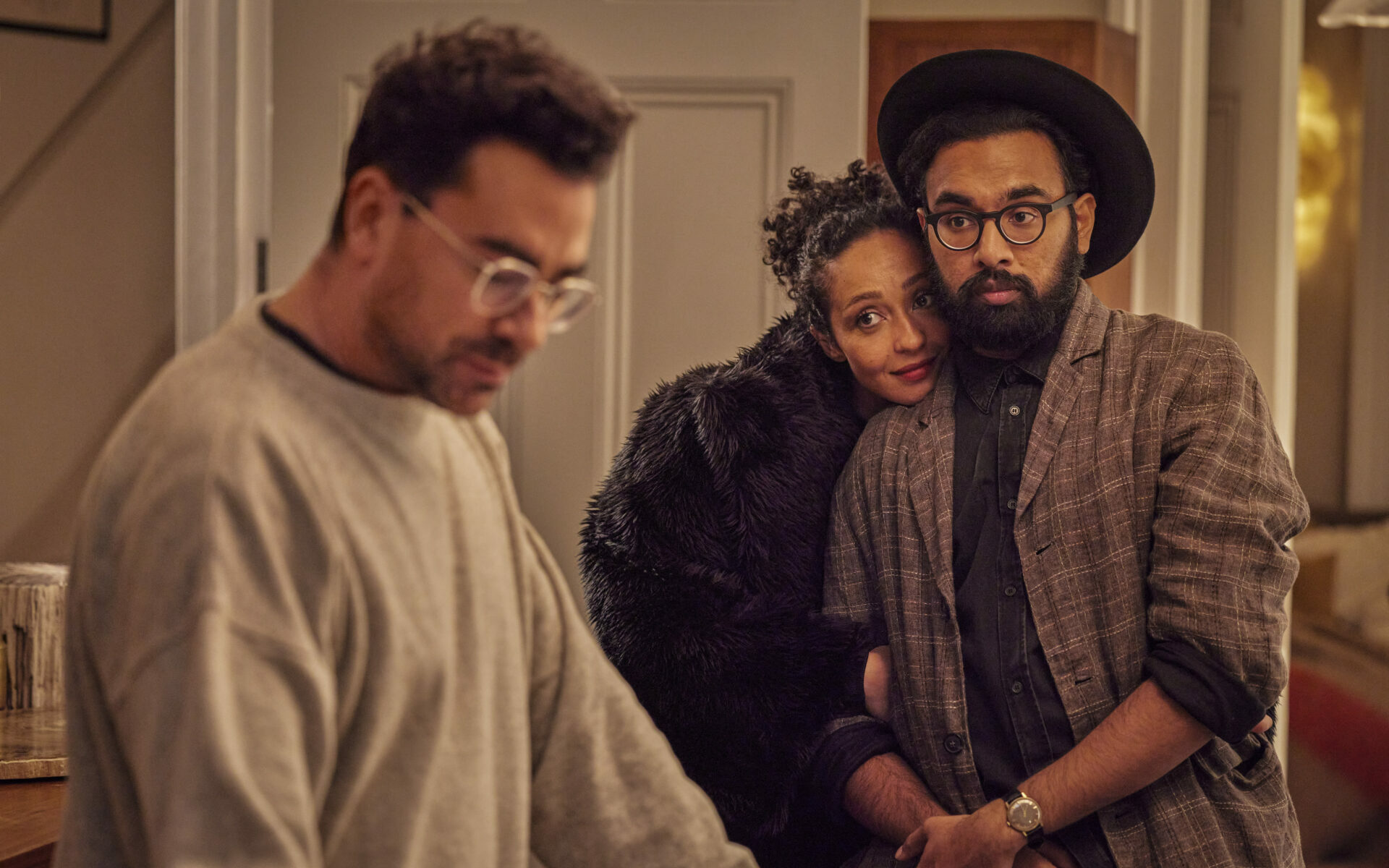
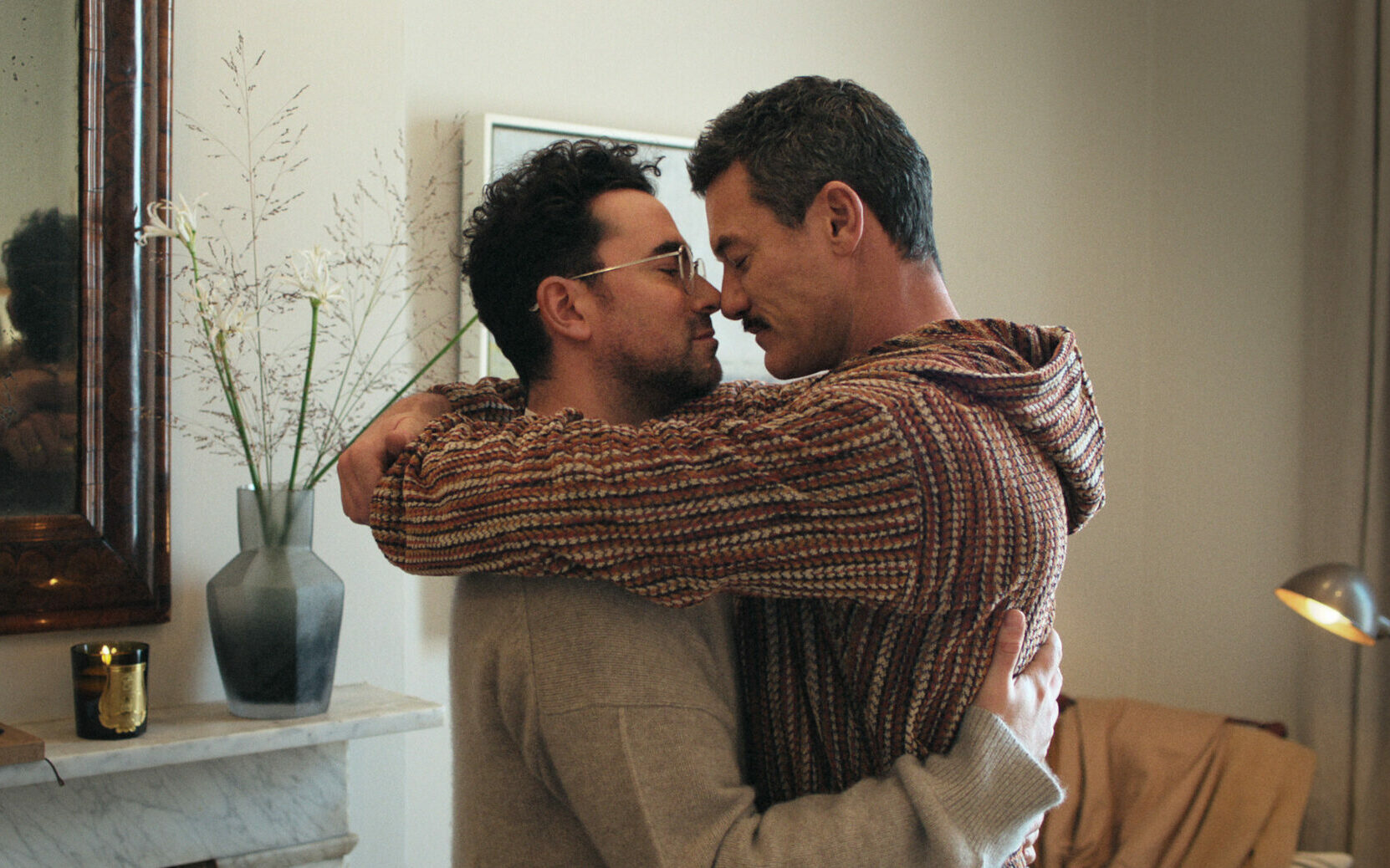
We’re talking today about Good Grief, Dan’s upcoming film for Netflix, which sees the writer-director-actor firing on all cylinders. In it, he plays Marc, a 30-something Londoner grieving the sudden loss of his husband Oliver (Luke Evans), a grief complicated by news of Oliver’s secret second relationship. It’s a substantial kind of storytelling, the likes of which we haven’t seen from the 40-year-old before.
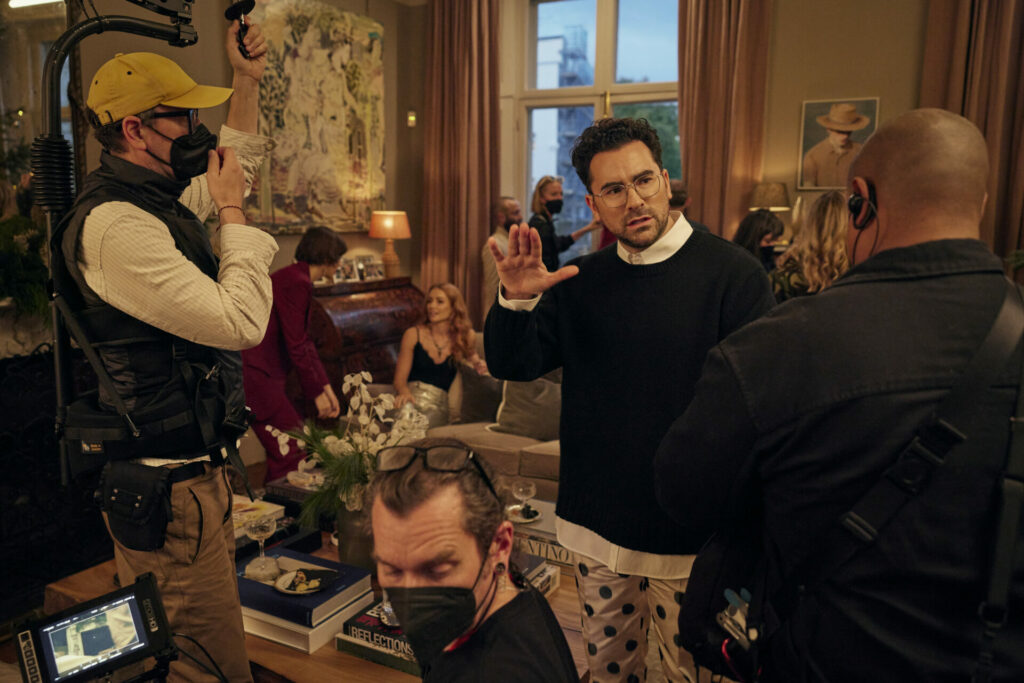
“It’s a drama with some comedy, as opposed to a comedy with some drama,” says Dan of the tonal departure from the wackiness that made his name. There are moments of rom-com magic, and road trip and buddy comedy, but ultimately, there is a balanced seriousness to Good Grief. (The title – ‘good’ and ‘grief’ – is telling.) “This is me allowing myself the freedom to tell a story that means something to me, and not be scared of people’s expectations,” says Dan.
So too is Marc a departure from David Rose. “When you play a character for 80 episodes of TV, it’s easy to slip into behavioural instincts,” he says. “I had to shake David off at the door and put on a completely different character when I walked into this movie. Marc’s way more still, less reactionary, far more inwardly sensitive.”
Good Grief was also a chance for Dan to examine themes of friendship and “found family”. (Ruth Negga and Himesh Patel play David’s on-screen friends Sophie and Thomas.) The importance and romanticism of it, but also, the complexities. How the love between gay men and straight women, for example, can have all the drama and intensity of Shakespeare. “I’m very much in love with my friends,” Dan shares. “And yet, I feel the older we get, and the closer and older the friends we have, sometimes the less we’re aware of fragments in the friendship. We excuse bad behaviour, turn a blind eye to things that need attention. You avoid the hard conversations because you love people so much.”
“I’d never really seen movies that celebrated friendship, first and foremost, and put romance on the backburner,” he adds. “Rom-coms tend to reverse that idea. Friends are peppered throughout as comic relief. […] This is me examining my own life and relationships, and how much they mean to me, particularly now. I’m single. As a single guy, my friends are everything. As a gay guy, found family is such a part of our identity.”
Here, in an open and honest interview, Dan reflects on the recurring theme of family in his work, the creative freedom bestowed on him by Netflix, and his enduring love of statement knitwear…
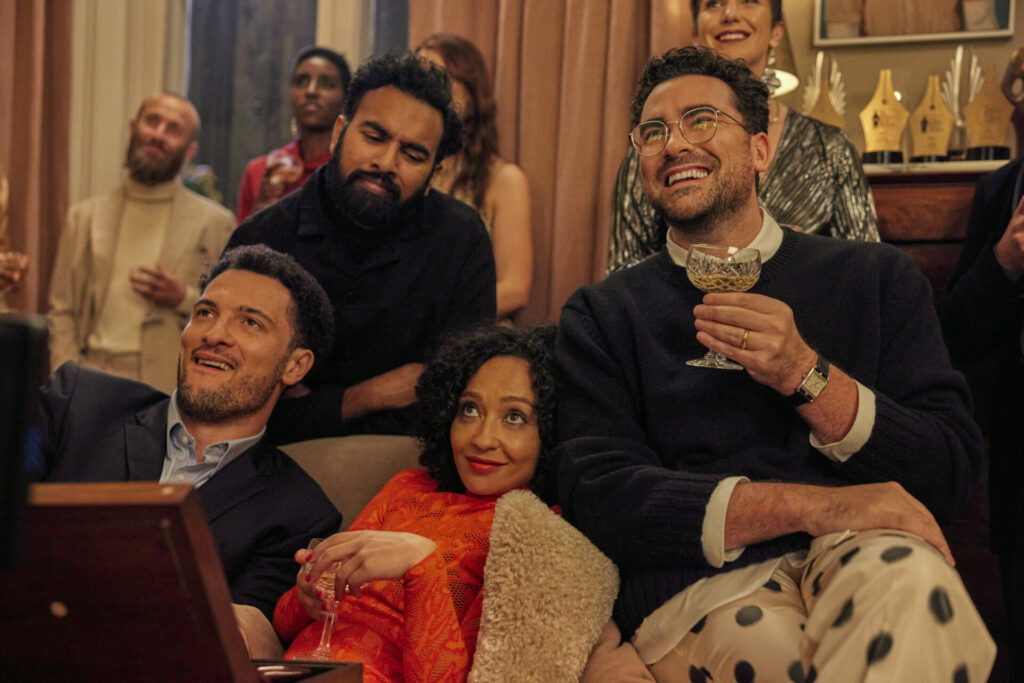
I liked the different gay male relationships in the film. One character has a second romantic relationship, a pair of exes have unresolved feelings, a love interest who brings sexual chemistry but, in the end, really shows up as a friend… Was that conscious, to depict queer male relationships with more dimensions than we’re used to in mainstream entertainment?
I don’t know if it was a conscious thing. But when you have the opportunity to tell stories about your life, and the lives of friends, your community, that really mean something… Often I look at parts and think: ‘This is underdeveloped.’ Or: ‘This doesn’t speak to the fullness of my experience.’ I’m always grateful when I’m given, not just the opportunity, but when I’m financially backed to tell these stories. It’s not something I take lightly. I’m aware of the weight of the responsibility because I know these opportunities get handed out infrequently, in the grand scheme of things. There are improvements, absolutely. But I’m aware of how rare it is to be able to tell a story like this. So, it’s important for me to constantly put the sensationalisation of queer characters away, and look at the truth, and treat them with the same level of care as we see straight characters. That was the perspective through all of Schitt’s Creek and it continued into this film. It was about exploring the breadth of gay relationship dynamics and making them all OK.
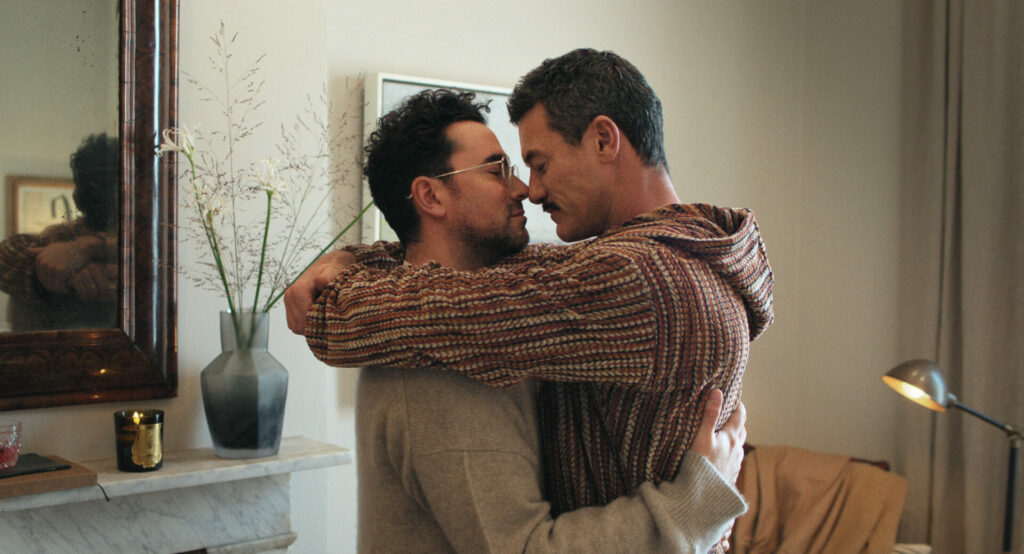
Good Grief is very different to Schitt’s Creek, but one crucial similarity is the subject of family. In this case, chosen over biological. It’s said that great artists return to a singular obsession. Do you think family might be yours?
I think it might. It’s interesting. I walked away from Schitt’s Creek, and I said: ‘OK, I want to tell a story about friendship.’ But in a way, there’s still that same preoccupation of figuring out what family means. In the case of this movie, this is Mark’s family. He doesn’t have anyone left. He lost his mother, his husband, and feels grateful for this safety net of friendship. These two friends have caught him in the hardest point of his life. And I think everything that happens following that, the truth that comes out, the hard truths, the cracking open of truth, as hard as it might seem for all of them, they’re all acts of love. I hadn’t really seen those conversations depicted in a movie before, front and centre, where that took up people’s attention.
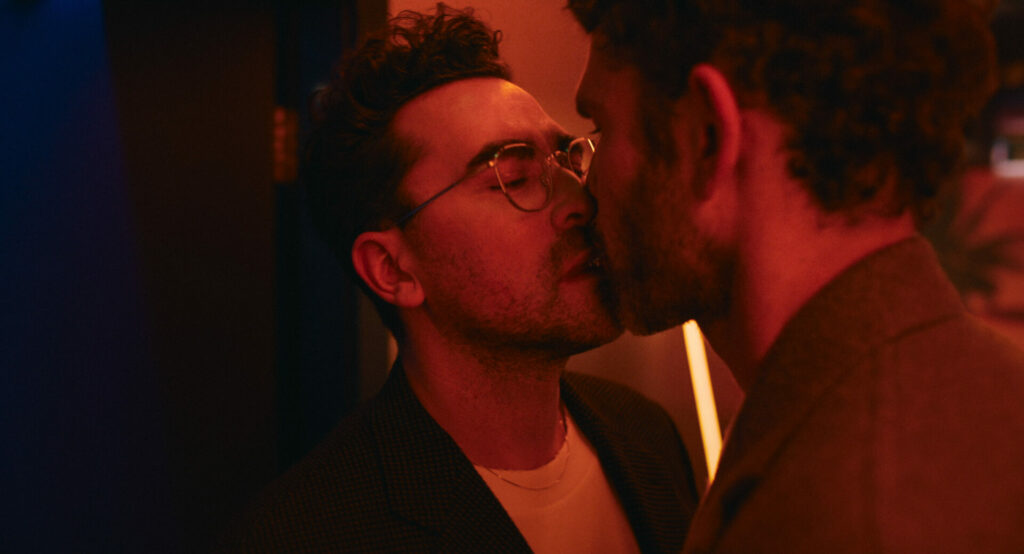
Tonally, the film is different from Schitt’s Creek. Which is a) a refreshing surprise from you b) your prerogative and c) sensible given the subject matter. What’s your message to Schitt’s Creek fans expecting a spiritual cousin of the show – are you looking forward to it appending expectations?
Oh, gosh. In a way, yeah. I have such an aversion to being pigeon-holed. I don’t know whether that has to do with being a gay actor in Hollywood, and then being a gay actor that did comedy… It’s like, suddenly, the walls come in. The scripts I was receiving, some of the parts that I was reading, were so uninspiring. A lot of what I was getting was just more David Rose. But I feel like I wrote David Rose the best! For me at least. I don’t think I could do better than that. I want to do something else. I want the same opportunities my peers who have had the same success around the same time are experiencing; I want that scope of opportunity. And yet, it doesn’t really happen. I think culturally right now, we’re so aware of what people expect. And we’re so critical of people that take a leap of faith to reject this push. I felt a push to build on the comedy world of Schitt’s Creek. I instead said: No, I have something I want to say over here. I want to use my acting muscles in a different way, and I want to feel good about that. And it’s something that means just as much to me. I would never put my name on something, or go through the intense work of writing, directing, and putting myself in something, if I didn’t really believe it to mean something. So, my hope is that people who love Schitt’s Creek loved it because there was truth to it. And while this is very different, and the subject matter is totally different, I think the integrity is there at least. And my desire to tell truthful stories. So, anyone that enjoyed the truth of Schitt’s Creek, there is that in spades in this film. It’s just a very different tone.
Be that as it may, are there any Schitt’s Creek easter eggs in the film – other than the main character’s statement knitwear?
There are some really great sweaters. So yeah, I would say that’s the overlap!
I was hoping to ask this question in person, but what has making the film taught you about the impermanence of life?
It answered a lot of my questions, to be honest. At the time, when I wrote it, I had lost some very important people in my life and didn’t know how to feel. I’ve been lucky enough in my life to have not had to grieve many people. And yet, when I did, it opened my eyes to a conversation that my brain had never had. Which is, what’s an appropriate amount of sadness to feel like you’ve honoured someone’s life? That’s an impossible question. But it was the question that launched the premise for the film a little bit.
At the time, it was the pandemic. I was feeling numb to so many things. To try to reconcile my feelings about loss, and the totality of loss, was a difficult thing. In my case, when I physically can’t feel what I want to feel, I turn to writing, because that’s an outlet. Words come far more easily sometimes than emotions. So, writing this movie, to me, was the great catharsis, and a celebration and honouring of people I’d lost. I think it’s a lovely thing to be able to share something with the world brought about through loss, that I hope provides hope and comfort for people.
The film looks at what it means to ‘have your shit together’, which nobody does. There’s a lot of pressure that comes with that idea. What is the film trying to say about it?
I think it was [exactly] that. Sometimes we need to give ourselves a break. The fact that nobody has their shit together. That doesn’t mean people can’t have a great life. But the concept, what does it even mean? I think for Himesh’s character, he had almost prided himself on, quote-unquote, having his shit together in order to protect himself from the reality that he had never really gotten over his feelings for his best friend. And it wasn’t until speaking that out loud that he realised that he, in fact, did not have his shit together. That what Mark says to him in that on that ferris wheel is in fact true. All we can hope for in our lives is that we try.
Have you connected with Our Son’s Billy Porter to compare notes on how traumatic it was playing Luke Evans’s partner in films coming out close together?
I have not seen Billy in quite some time. I would love to connect with him about that. Listen, it’s a really hard thing. It was really, really difficult. [Laughs] Luke is a dream. Considering the challenge at hand, where he’s only in, like, 12 minutes of the film, and yet has to live in people’s minds for the entirety of it… There are only a handful of people that could do that in the way that Luke does it. Who he is on screen – yes, it’s a character, but he pulled from so much of his own charm. There’s a reason he is who he is. He’s such a generous actor and we just had a lovely time.
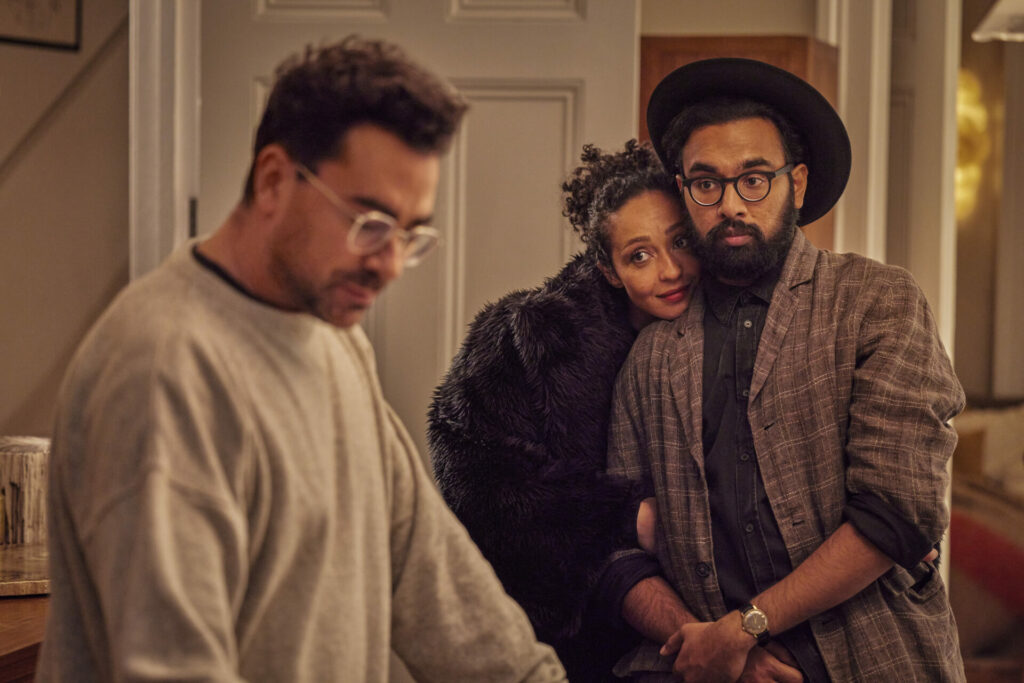
Have any of your Schitt’s Creek family seen the film?
Nobody. Not even my own family. I mean, part of my family is my Schitt’s Creek family, but I’ve kept things quiet. You have impulses when putting a movie together to show people cuts of the film. And then you’ll change so many elements, and then you have to go back and be like, no, no, it’s better now! I wanted them to see it when it was absolutely ready.
Can you tell us anything about your future Netflix projects?
Um… no! [Laughs] Not yet. I’ve got to get the movie out, and then I’ll get back at it. I have a few ideas percolating, so we’ll see. But I feel very motivated by making this movie. This is the first thing I’ve done with Netflix. And I’m excited to get back into some TV…
Good Grief streams on Netflix from 5 January.
